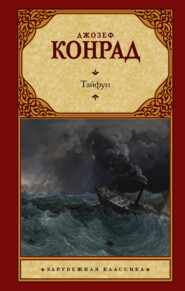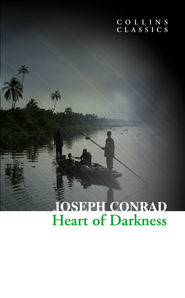По всем вопросам обращайтесь на: info@litportal.ru
(©) 2003-2024.
✖
Victory
Автор
Год написания книги
2019
Настройки чтения
Размер шрифта
Высота строк
Поля
“Queer chap, that Swede,” was his only comment; but this is the origin of the name “Enchanted Heyst” which some fellows fastened on our man.
He also had other names. In his early years, long before he got so becomingly bald on the top, he went to present a letter of introduction to Mr. Tesman of Tesman Brothers, a Sourabaya firm—tip-top house. Well, Mr. Tesman was a kindly, benevolent old gentleman. He did not know what to make of that caller. After telling him that they wished to render his stay among the islands as pleasant as possible, and that they were ready to assist him in his plans, and so on, and after receiving Heyst’s thanks—you know the usual kind of conversation—he proceeded to query in a slow, paternal tone:
“And you are interested in—?”
“Facts,” broke in Heyst in his courtly voice. “There’s nothing worth knowing but facts. Hard facts! Facts alone, Mr. Tesman.”
I don’t know if old Tesman agreed with him or not, but he must have spoken about it, because, for a time, our man got the name of “Hard Facts.” He had the singular good fortune that his sayings stuck to him and became part of his name. Thereafter he mooned about the Java Sea in some of the Tesmans’ trading schooners, and then vanished, on board an Arab ship, in the direction of New Guinea. He remained so long in that outlying part of his enchanted circle that he was nearly forgotten before he swam into view again in a native proa full of Goram vagabonds, burnt black by the sun, very lean, his hair much thinned, and a portfolio of sketches under his arm. He showed these willingly, but was very reserved as to anything else. He had had an “amusing time,” he said. A man who will go to New Guinea for fun—well!
Later, years afterwards, when the last vestiges of youth had gone off his face and all the hair off the top of his head, and his red-gold pair of horizontal moustaches had grown to really noble proportions, a certain disreputable white man fastened upon him an epithet. Putting down with a shaking hand a long glass emptied of its contents—paid for by Heyst—he said, with that deliberate sagacity which no mere water-drinker ever attained:
“Heyst’s a puffect g’n’lman. Puffect! But he’s a ut-uto-utopist.”
Heyst had just gone out of the place of public refreshment where this pronouncement was voiced. Utopist, eh? Upon my word, the only thing I heard him say which might have had a bearing on the point was his invitation to old McNab himself. Turning with that finished courtesy of attitude, movement voice, which was his obvious characteristic, he had said with delicate playfulness:
“Come along and quench your thirst with us, Mr. McNab!”
Perhaps that was it. A man who could propose, even playfully, to quench old McNab’s thirst must have been a utopist, a pursuer of chimeras; for of downright irony Heyst was not prodigal. And, may be, this was the reason why he was generally liked. At that epoch in his life, in the fulness of his physical development, of a broad, martial presence, with his bald head and long moustaches, he resembled the portraits of Charles XII., of adventurous memory. However, there was no reason to think that Heyst was in any way a fighting man.
CHAPTER 2 (#ulink_65f80c55-9332-5eab-aa04-fe8c1dfbc1db)
It was about this time that Heyst became associated with Morrison on terms about which people were in doubt. Some said he was a partner, others said he was a sort of paying guest, but the real truth of the matter was more complex. One day Heyst turned up in Timor. Why in Timor, of all places in the world, no one knows. Well, he was mooning about Delli, that highly pestilential place, possibly in search of some undiscovered facts, when he came in the street upon Morrison, who, in his way, was also an “enchanted” man. When you spoke to Morrison of going home—he was from Dorsetshire—he shuddered. He said it was dark and wet there; that it was like living with your head and shoulders in a moist gunny-bag. That was only his exaggerated style of talking. Morrison was “one of us.” He was owner and master of the Capricorn, trading brig, and was understood to be doing well with her, except for the drawback of too much altruism. He was the dearly beloved friend of a quantity of God-forsaken villages up dark creeks and obscure bays, where he traded for produce. He would often sail, through awfully dangerous channels up to some miserable settlement, only to find a very hungry population clamorous for rice, and without so much “produce” between them as would have filled Morrison’s suitcase. Amid general rejoicings, he would land the rice all the same, explain to the people that it was an advance, that they were in debt to him now; would preach to them energy and industry, and make an elaborate note in a pocket-diary which he always carried; and this would be the end of that transaction. I don’t know if Morrison thought so, but the villagers had no doubt whatever about it. Whenever a coast village sighted the brig it would begin to beat all its gongs and hoist all its streamers, and all its girls would put flowers in their hair and the crowd would line the river bank, and Morrison would beam and glitter at all this excitement through his single eyeglass with an air of intense gratification. He was tall and lantern-jawed, and clean-shaven, and looked like a barrister who had thrown his wig to the dogs.
We used to remonstrate with him:
“You will never see any of your advances if you go on like this, Morrison.”
He would put on a knowing air.
“I shall squeeze them yet some day—never you fear. And that reminds me”—pulling out his inseparable pocketbook—“there’s that So-and-So village. They are pretty well off again; I may just as well squeeze them to begin with.”
He would make a ferocious entry in the pocketbook.
Memo: Squeeze the So-and-So village at the first time of calling.
Then he would stick the pencil back and snap the elastic on with inflexible finality; but he never began the squeezing. Some men grumbled at him. He was spoiling the trade. Well, perhaps to a certain extent; not much. Most of the places he traded with were unknown not only to geography but also to the traders’ special lore which is transmitted by word of mouth, without ostentation, and forms the stock of mysterious local knowledge. It was hinted also that Morrison had a wife in each and every one of them, but the majority of us repulsed these innuendoes with indignation. He was a true humanitarian and rather ascetic than otherwise.
When Heyst met him in Delli, Morrison was walking along the street, his eyeglass tossed over his shoulder, his head down, with the hopeless aspect of those hardened tramps one sees on our roads trudging from workhouse to workhouse. Being hailed on the street he looked up with a wild worried expression. He was really in trouble. He had come the week before into Delli and the Portuguese authorities, on some pretence of irregularity in his papers, had inflicted a fine upon him and had arrested his brig.
Morrison never had any spare cash in hand. With his system of trading it would have been strange if he had; and all these debts entered in the pocketbook weren’t good enough to raise a millrei on—let alone a shilling. The Portuguese officials begged him not to distress himself. They gave him a week’s grace, and then proposed to sell the brig at auction. This meant ruin for Morrison; and when Heyst hailed him across the street in his usual courtly tone, the week was nearly out.
Heyst crossed over, and said with a slight bow, and in the manner of a prince addressing another prince on a private occasion:
“What an unexpected pleasure. Would you have any objection to drink something with me in that infamous wine-shop over there? The sun is really too strong to talk in the street.”
The haggard Morrison followed obediently into a sombre, cool hovel which he would have distained to enter at any other time. He was distracted. He did not know what he was doing. You could have led him over the edge of a precipice just as easily as into that wine-shop. He sat down like an automaton. He was speechless, but he saw a glass full of rough red wine before him, and emptied it. Heyst meantime, politely watchful, had taken a seat opposite.
“You are in for a bout of fever, I fear,” he said sympathetically.
Poor Morrison’s tongue was loosened at that.
“Fever!” he cried. “Give me fever. Give me plague. They are diseases. One gets over them. But I am being murdered. I am being murdered by the Portuguese. The gang here downed me at last among them. I am to have my throat cut the day after tomorrow.”
In the face of this passion Heyst made, with his eyebrows, a slight motion of surprise which would not have been misplaced in a drawing-room. Morrison’s despairing reserve had broken down. He had been wandering with a dry throat all over that miserable town of mud hovels, silent, with no soul to turn to in his distress, and positively maddened by his thoughts; and suddenly he had stumbled on a white man, figuratively and actually white—for Morrison refused to accept the racial whiteness of the Portuguese officials. He let himself go for the mere relief of violent speech, his elbows planted on the table, his eyes blood-shot, his voice nearly gone, the brim of his round pith hat shading an unshaven, livid face. His white clothes, which he had not taken off for three days, were dingy. He had already gone to the bad, past redemption. The sight was shocking to Heyst; but he let nothing of it appear in his bearing, concealing his impression under that consummate good-society manner of his. Polite attention, what’s due from one gentleman listening to another, was what he showed; and, as usual, it was catching; so that Morrison pulled himself together and finished his narrative in a conversational tone, with a man-of-the-world air.
“It’s a villainous plot. Unluckily, one is helpless. That scoundrel Cousinho—Andreas, you know—has been coveting the brig for years. Naturally, I would never sell. She is not only my livelihood; she’s my life. So he has hatched this pretty little plot with the chief of the customs. The sale, of course, will be a farce. There’s no one here to bid. He will get the brig for a song—no, not even that—a line of a song. You have been some years now in the islands, Heyst. You know us all; you have seen how we live. Now you shall have the opportunity to see how some of us end; for it is the end, for me. I can’t deceive myself any longer. You see it—don’t you?”
Morrison had pulled himself together, but one felt the snapping strain on his recovered self-possession. Heyst was beginning to say that he “could very well see all the bearings of this unfortunate—” when Morrison interrupted him jerkily.
“Upon my word, I don’t know why I have been telling you all this. I suppose seeing a thoroughly white man made it impossible to keep my trouble to myself. Words can’t do it justice; but since I’ve told you so much I may as well tell you more. Listen. This morning on board, in my cabin I went down on my knees and prayed for help. I went down on my knees!”
“You are a believer, Morrison?” asked Heyst with a distinct note of respect.
“Surely I am not an infidel.”
Morrison was swiftly reproachful in his answer, and there came a pause, Morrison perhaps interrogating his conscience, and Heyst preserving a mien of unperturbed, polite interest.
“I prayed like a child, of course. I believe in children praying—well, women, too, but I rather think God expects men to be more self-reliant. I don’t hold with a man everlastingly bothering the Almighty with his silly troubles. It seems such cheek. Anyhow, this morning I—I have never done any harm to any God’s creature knowingly—I prayed. A sudden impulse—I went flop on my knees; so you may judge—”
They were gazing earnestly into each other’s eyes. Poor Morrison added, as a discouraging afterthought:
“Only this is such a God-forsaken spot.”
Heyst inquired with a delicate intonation whether he might know the amount for which the brig was seized.
Morrison suppressed an oath, and named curtly a sum which was in itself so insignificant that any other person than Heyst would have exclaimed at it. And even Heyst could hardly keep incredulity out of his politely modulated voice as he asked if it was a fact that Morrison had not that amount in hand.
Morrison hadn’t. He had only a little English gold, a few sovereigns, on board. He had left all his spare cash with the Tesmans, in Samarang, to meet certain bills which would fall due while he was away on his cruise. Anyhow, that money would not have been any more good to him than if it had been in the innermost depths of the infernal regions. He said all this brusquely. He looked with sudden disfavour at that noble forehead, at those great martial moustaches, at the tired eyes of the man sitting opposite him. Who the devil was he? What was he, Morrison, doing there, talking like this? Morrison knew no more of Heyst than the rest of us trading in the Archipelago did. Had the Swede suddenly risen and hit him on the nose, he could not have been taken more aback than when this stranger, this nondescript wanderer, said with a little bow across the table:
“Oh! If that’s the case I would be very happy if you’d allow me to be of use!”
Morrison didn’t understand. This was one of those things that don’t happen—unheard of things. He had no real inkling of what it meant, till Heyst said definitely:
“I can lend you the amount.”
“You have the money?” whispered Morrison. “Do you mean here, in your pocket?”
“Yes, on me. Glad to be of use.”
Morrison, staring open-mouthed, groped over his shoulder for the cord of the eyeglass hanging down his back. When he found it, he stuck it in his eye hastily. It was as if he expected Heyst’s usual white suit of the tropics to change into a shining garment, flowing down to his toes, and a pair of great dazzling wings to sprout out on the Swede’s shoulders—and didn’t want to miss a single detail of the transformation. But if Heyst was an angel from on high, sent in answer to prayer, he did not betray his heavenly origin by outward signs. So, instead of going on his knees, as he felt inclined to do, Morrison stretched out his hand, which Heyst grasped with formal alacrity and a polite murmur in which “Trifle—delighted—of service,” could just be distinguished.
“Miracles do happen,” thought the awestruck Morrison. To him, as to all of us in the Islands, this wandering Heyst, who didn’t toil or spin visibly, seemed the very last person to be the agent of Providence in an affair concerned with money. The fact of his turning up in Timor or anywhere else was no more wonderful than the settling of a sparrow on one’s window-sill at any given moment. But that he should carry a sum of money in his pocket seemed somehow inconceivable.
So inconceivable that as they were trudging together through the sand of the roadway to the custom-house—another mud hovel—to pay the fine, Morrison broke into a cold sweat, stopped short, and exclaimed in faltering accents:
“I say! You aren’t joking, Heyst?”
“Joking!” Heyst’s blue eyes went hard as he turned them on the discomposed Morrison. “In what way, may I ask?” he continued with austere politeness.

















